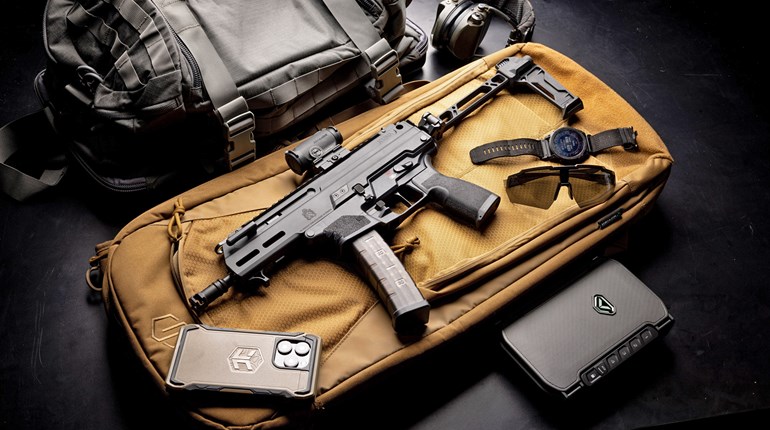
Cryptocurrency is more popular than ever before, and its footprint in the firearm industry grows by the day. It’s a radical departure from the traditional payment for firearms, ammunition and accessories, a change partly driven by economic uncertainty and even convenience. A different catalyst brought it to the industry, though.
Big Brother was coined by George Orwell in his novel “1984,” which was published in 1949, long before the internet, facial recognition, location-revealing smartphones and chip-storing credit cards. There’s no denying each make our lives easier, but they collect information.
When a few financial institutions instituted a policy of denying a retailer’s ability to process credit cards for firearm purchases—roughly a decade ago based on that instantly transmitted data—it caught many FFLs by surprise. Some banks went so far as to sever decades-old business relationships with gun stores.
Thankfully, other firms rode to the rescue, but there is no guarantee new managers won’t enact similar policies. Banking middlemen are eliminated with cryptocurrency, and a few forward-thinking gun stores harnessed those advantages.
Central Texas Gunworks began accepting Bitcoin in January 2014, a few years before the banking trend became widespread. At the time, major media outlets proclaimed it “America’s First Bitcoin-Friendly Gun Store,” noting it even had a unicorn-scarce (at the time) Bitcoin ATM on site. Frontier Tactical began accepting Bitcoin in 2017. Others followed, including DSG Arms, but it’s still far from commonplace. A January 2019 announcement signaled a significant shift, however.
That month, gunbroker.com announced it would begin accepting FreedomCoin. It was a new, regulatory-compliant, corporate blockchain currency created by ICOx Innovations for the giant website. “We are excited to bring the more than 4.7 million customers gunbroker.com has in its network the ability to buy and sell products with a corporate cryptocurrency and blockchain-enabled infrastructure,” said Bruce Elliott, president of ICOx Innovations. “With hundreds of millions of dollars transacted annually on gunbroker.com, this may become the most retail transacted cryptocurrency in the U.S.”
“Anyone who has purchased a firearm knows how painstakingly brutal it can be to deal with traditional credit card companies and other financial institutions,” stated Steven F. Urvan, CEO and chief technology officer at gunbroker.com. “Thanks to ICOx and BitRail, now we can virtually eliminate that problem and expose a whole new segment of gun and outdoor enthusiasts to the world of digital payments.”
Corporate Goliaths like Microsoft, Starbucks and Home Depot are already on board with cryptocurrency. The future is obvious, but is there a digital coin created by and for gun owners not exclusive to gunbroker.com?
The Universal Settlement Coin (TUSC) launched in January, 2020, a project which began in 2018, according to Rob McNealy, cofounder of the Decentralized Autonomous Organization that created it. “As gun owners, and ardent defenders of the right to self-defense, we know that the gun industry is constantly under attack,” he said at the time. “We wanted to create a gun-centric crypto to act as a ‘continuity of business.’”
Shooting Illustrated caught up with McNealy recently and asked about the coin. “I also used to own a small online gun accessory business,” he said, “and knew all about the payment problems the gun industry has. The gun industry is one of the few industries with recognized payment problems that crypto can actually help solve, so we thought it just made sense to bring crypto to the gun world.”
He explained the digital payment approach is confusing to many, but “…isn’t much more complicated than PayPal was 20 years ago.” It’s fast, too. TUSC payments process in 3 seconds, confirmation comes in half that time and there are no transaction fees. The system is credit card-fast without Big Brother looking. Obviously, it doesn’t circumvent any of the background-check procedures at the federal and/or state level, but it does eliminate potential snafus brought about by recalcitrant credit-card companies.



































